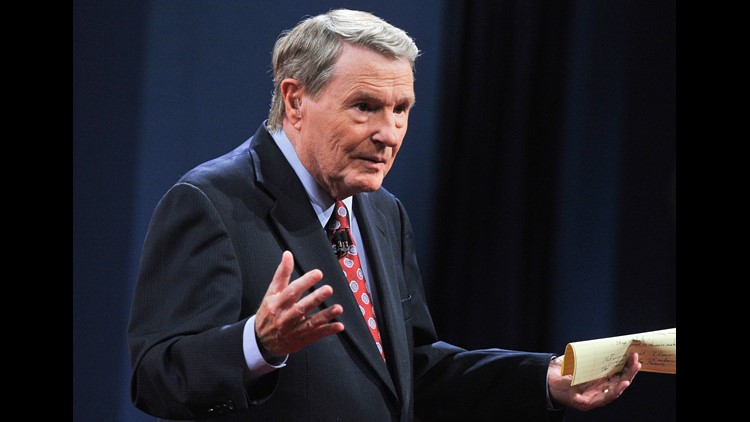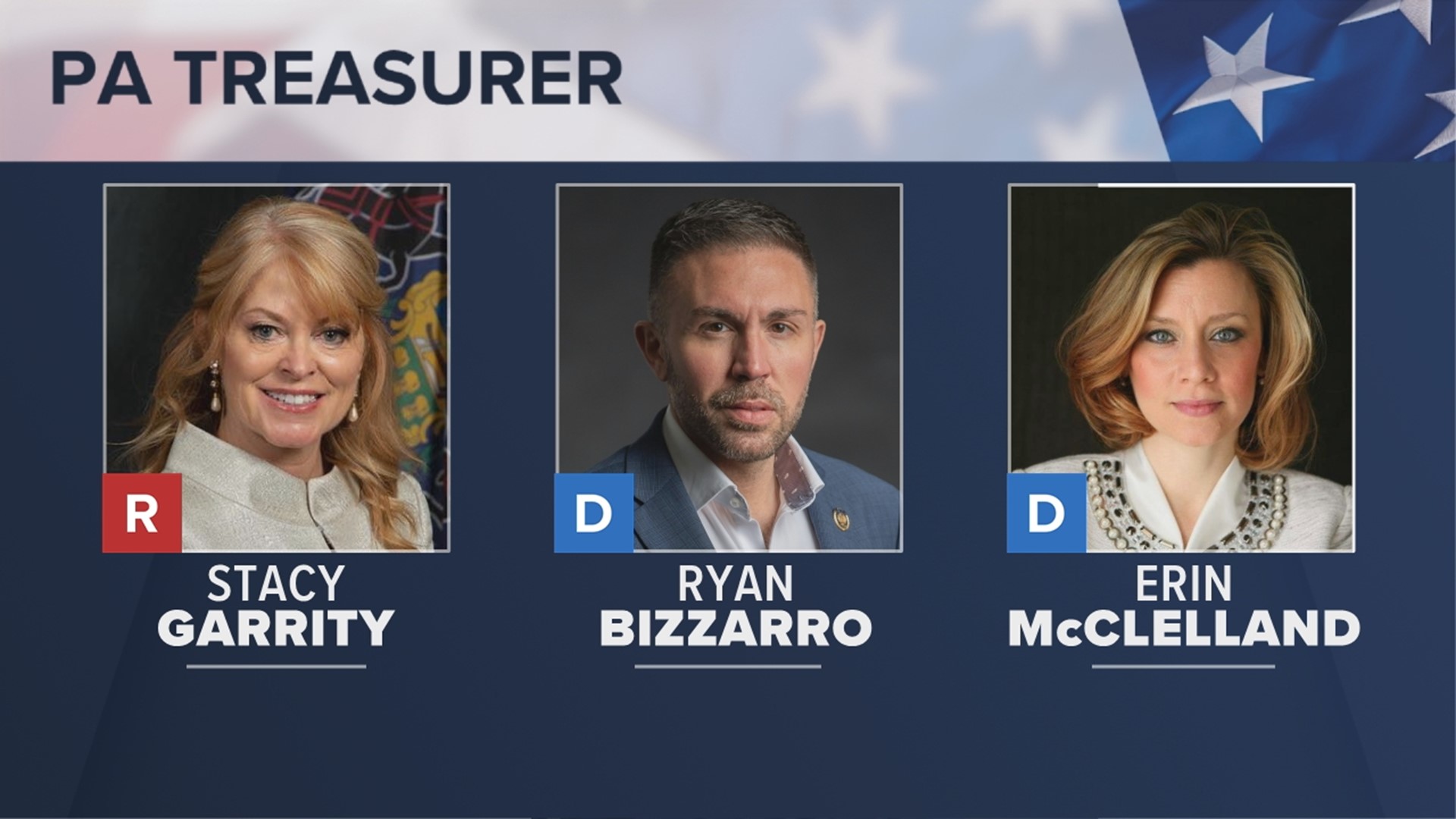Jim Lehrer, the legendary debate moderator and former anchor of the “NewsHour” television program, died Thursday. He was 85.
Lehrer’s death was announced by his longtime network home, PBS, where he co-founded the “NewsHour” in 1975.
PBS said Lehrer died “peacefully in his sleep at home” and did not share further information about the cause of death.
Lehrer anchored the “NewsHour,” the flagship newscast on public television in the United States, for 36 years. He retired in 2011.
His successor at the anchor desk, Judy Woodruff, said in a statement Thursday, “I’m heartbroken at the loss of someone who was central to my professional life, a mentor to me and someone whose friendship I’ve cherished for decades. I’ve looked up to him as the standard for fair, probing and thoughtful journalism and I know countless others who feel the same way.”
Lehrer held the record for presidential debate moderating: He helmed 12 general election debates, “more than any other person in U.S. history,” PBS noted.
In his 2011 book “Tension City,” named for his apt description of what debate nights felt like, Lehrer said he had “pre-debate anxieties” no matter how many times he moderated.
Anyone entrusted as a moderator must “keep the event fair and moving while staying out of the way,” he wrote.
On Thursday CNN anchor Jake Tapper remembered Lehrer as a “wonderful man and superb journalist.”
“He was a debate moderator, a US Marine, a former newspaperman, a novelist, an anchorman, a dad, husband and grandpa, a role model,” Tapper wrote. “And he always had time to chat with younger journalists.”
Fox News anchor Bret Baier called Lehrer “a legend in our business and a very genuine, gracious man” who inspired a generation of political journalists.
Lehrer grew up in Kansas and Texas. Upon graduation from the Missouri School of Journalism in 1956, he enlisted in the Marine Corps and served as an infantry officer. In a 2006 speech at Harvard, he said he expected to be drafted if he did not enlist.
“I am grateful my country forced me to serve my country. Not for my country’s sake, but for my own,” Lehrer said in 2006. “In that diverse company, I learned to be responsible for others. I learned to be dependent on others. I learned there was more to life than me, me, me, me.”
That same year, while speaking at a Marine museum dedication in Quantico, Virginia, Lehrer said that his service also trained him to remember that decisions about U.S. use of force around the world are decisions “about young lance corporals and second lieutenants and other very real people at all branches of the U.S. military, people with names, ranks, serial numbers, faces, families, and futures that may never be.”
After three years of duty, Lehrer returned home and became a reporter at The Dallas Morning News. He later shifted to a rival paper that no longer exists, the Dallas Times Herald, and then entered the television business at KERA, the public broadcaster in Dallas.
Lehrer reached a national audience when he joined WETA, the public TV station in Washington, in 1973, and co-anchored PBS coverage of the Senate Watergate hearings with Robert MacNeil.
“The hearings, carried live and repeated each night, became a huge and unexpected hit, and MacNeil and Lehrer emerged as its low-key, Emmy-winning stars,” The Washington Post reported.
Watergate eventually led to the formation of the “NewsHour” broadcast in 1975. MacNeil and Lehrer anchored together.
“Our program caught on because it was original and it answered a real journalistic need,” MacNeil wrote in his memoirs.
Over the years Lehrer authored two dozen books, most of them novels, and several plays.
Lehrer appeared on CNN’s “Reliable Sources” in December and discussed the importance of “old fashioned journalism values” at a time of division in American politics and a time of revolution in the media.
Reflecting on his own coverage of past impeachment proceedings, Lehrer said that President Trump’s impeachment probably has an “even a larger audience” than Nixon’s or Clinton’s, but most Americans are “using their own prism to watch it,” from Fox to PBS.
“They’re not gathering around the TV set to watch it like we did in ’73, ’74,” and “with Clinton later. We’re not doing that anymore,” he said. “We probably never will again.”



